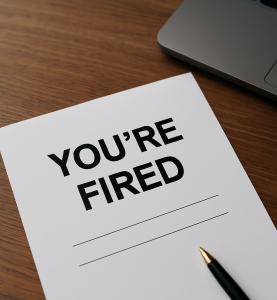New measures are now detailed in the Home Office’s guidance to make it easier for employers to carry out their compulsory right to work checks in light of the stringent social distancing measures currently in place.
Prior to the introduction of this guidance, employers were required to carry out either a manual right to work check or an online right to work check before employing a person.
Speaking to Gurjit Pall, Immigration law specialist at Thorntons, he said: “Under the new temporary measures, the UK Home Office have confirmed that right to work checks can now be carried out via video calls as opposed to the requirement of doing so in the presence of the prospective employee or existing worker.”
Employers will now be permitted to accept scanned documents or photographs of documents from prospective employees and existing workers using email or a mobile app, instead of requiring original documents to be sent to them.
“Where the prospective employee or existing worker sends a scanned copy or a photo of their original documents via email or using a mobile app, the employer should arrange a video call with the prospective employee or existing worker. The employer, during this video call, should ask the prospective employee or existing worker to hold up their original documents to the camera and check this against the digital copy of the documents sent to the employer prior to the video call.
“As per the existing requirements for right to work checks, employers will be expected to record the date the check was made, however under the new temporary measures, employers will be asked to mark the file copy of the check made with “adjusted check undertaken on [insert date] due to COVID-19”.
Where the prospective employee or existing worker has a current Biometric Residence Permit or Biometric Residence Card or status under the EU Settlement Scheme, employers will be able to use the online right to work checking service while doing the video call. It is important that employers obtain permission from the applicant prior to viewing their details.
“These are temporary measures, and employers must keep all evidence and carry out retrospective checks within 8 weeks of the Covid-19 measures ending”, expands Gurjit. “These retrospective checks will need to be carried out on existing employees who either started employment during these measures or required a follow-up right to work check during these measures.
Employers should take extra care, however, to ensure that no one is discriminated against as a job applicant or employee because they are unable to show you their documents. The Home Office Employer Checking Service will continue to be operational and should be used where the job applicant or existing worker cannot show their documents.
“Where an employer is found to be employing someone illegally and has not carried out the prescribed checks – or their temporary alternative measures - they could face substantial sanctions including but not limited to a civil penalty of up to £20,000 per illegal worker; in serious cases, a criminal conviction carrying a prison sentence of up to 5 years and an unlimited fine; closure of the business and a compliance order issued by the court.
“Caution should therefore be exercised when applying these new temporary right to work checks in practice.”
Insight from Gurjit Pall, Immigration law specialist at Thorntons





















